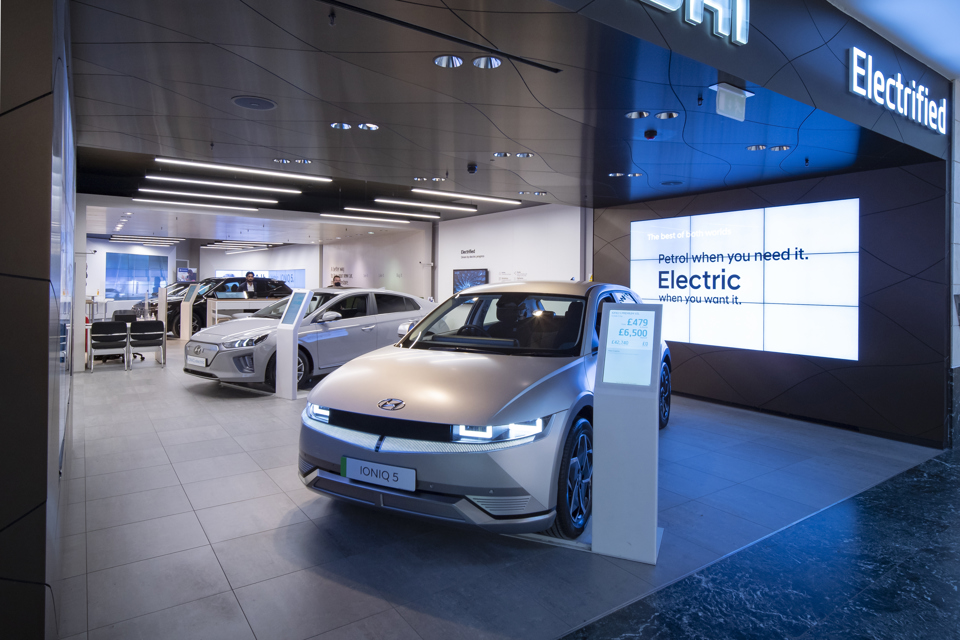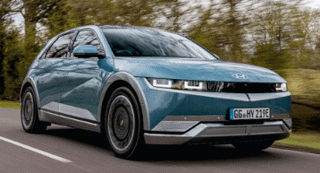Hyundai will introduce 17 new battery electric vehicle (BEV) models by 2030 – 11 Hyundai models and six for its Genesis luxury brand.
At the unveiling of the company’s electrification roadmap at the 2022 CEO Investor Day forum today (Wednesday, March 2), Hyundai revealed it is targeting annual BEV sales of 1.87 million units by 2030. It aims to take 7% market share in the overall global BEV market.
The new Hyundai BEV models will include three sedan models, six SUVs, one light commercial vehicle as well as one new type model. Later this year, Hyundai will begin sales of Ioniq 6, followed by Ioniq 7 in 2024.
The Genesis BEV line-up consists of two passenger cars and four SUVs, including the Electrified GV70 launching this year. Starting in 2025, all newly launched models from Genesis will be electrified.
President and CEO Jaehoon Chang said: “Hyundai is successfully accelerating its transition to electrification and becoming a global leader in EVs despite a challenging business environment caused by the global chip shortage and ongoing pandemic.
“Along with our seamless efforts to improve EV value, Hyundai Motor will continue to secure its business sustainability as a ‘Mobility Solutions Provider’ through advanced technologies of not only hardware but also software.”
Hyundai aims to establish a high-efficiency manufacturing process for BEV production to accelerate its transition into electrification.
Beyond existing BEV production facilities centered in Korea and the Czech Republic, it plans to gradually expand its BEV manufacturing bases, starting with an Indonesian plant that recently started operation. The Indonesian plant will start BEV production this year to help expand production volume.
As BEV production bases expand, the company is trying to increase the local procurement rate of batteries through strategic alliances with battery companies in major regions, including the US, to secure sufficient battery supply.
Through these alliances, the company expects to obtain more than 50% of its next-generation lithium batteries for BEVs starting in 2025.
In addition, Hyundai will also diversify battery sourcing to consolidate the competitiveness of future BEVs. The company says it has secured sufficient battery supply to meet its sales targets by 2023.
Hyundai plans to continue cooperation with various battery companies with an aim of securing 170 GWh of batteries for its models, including Genesis luxury brand by 2030.
The manufacturer is also planning to introduce an Integrated Modular Architecture (IMA), evolved from the electric global modular platform (E-GMP) that is the foundation of Ioniq 5 and GV60, launched in 2021.
The IMA will be utilised not only to as Hyundai passenger BEV platform but also as its exclusive purpose-built vehicle (PBV) platform.
The IMA is being developed to standardise not only a chassis but also battery system and motor.
Unlike the existing BEV development system, which has different types of battery packs for each model, IMA can be equipped with standardised battery packs to attach flexibly regardless of the model to improve cost efficiency.
Through the cell-to-pack system, the new architecture can also secure sufficient energy density and shorten charging time, it says.
Furthermore, the company plans to apply an over-the-air (OTA) update to new models that will be launched starting at the end of 2022, and expand it to all Hyundai models by 2025.
In terms of autonomous driving technology, the Highway Driving Pilot (HDP), a Level 3 autonomous driving function, will be applied to Genesis G90 starting in the second half of this year.
The Motional, an autonomous driving joint venture between Hyundai Motor Group and Aptiv, plans to expand the service area of an Ioniq 5-based robotaxi following its commercial service commencement in 2023 and start self-driving delivery services this year through partnerships with Uber Eats.
> Interested in comparing electric vehicle data? Check out our EV tool.
> Interested in ensuring the efficient use of EVs. Check out our dedicated editorial sections: Insight & policy | EV news | Charging & infrastructure | Costs & incentives | Benefit-in-kind | EV case studies | EV road tests
























Login to comment
Comments
No comments have been made yet.